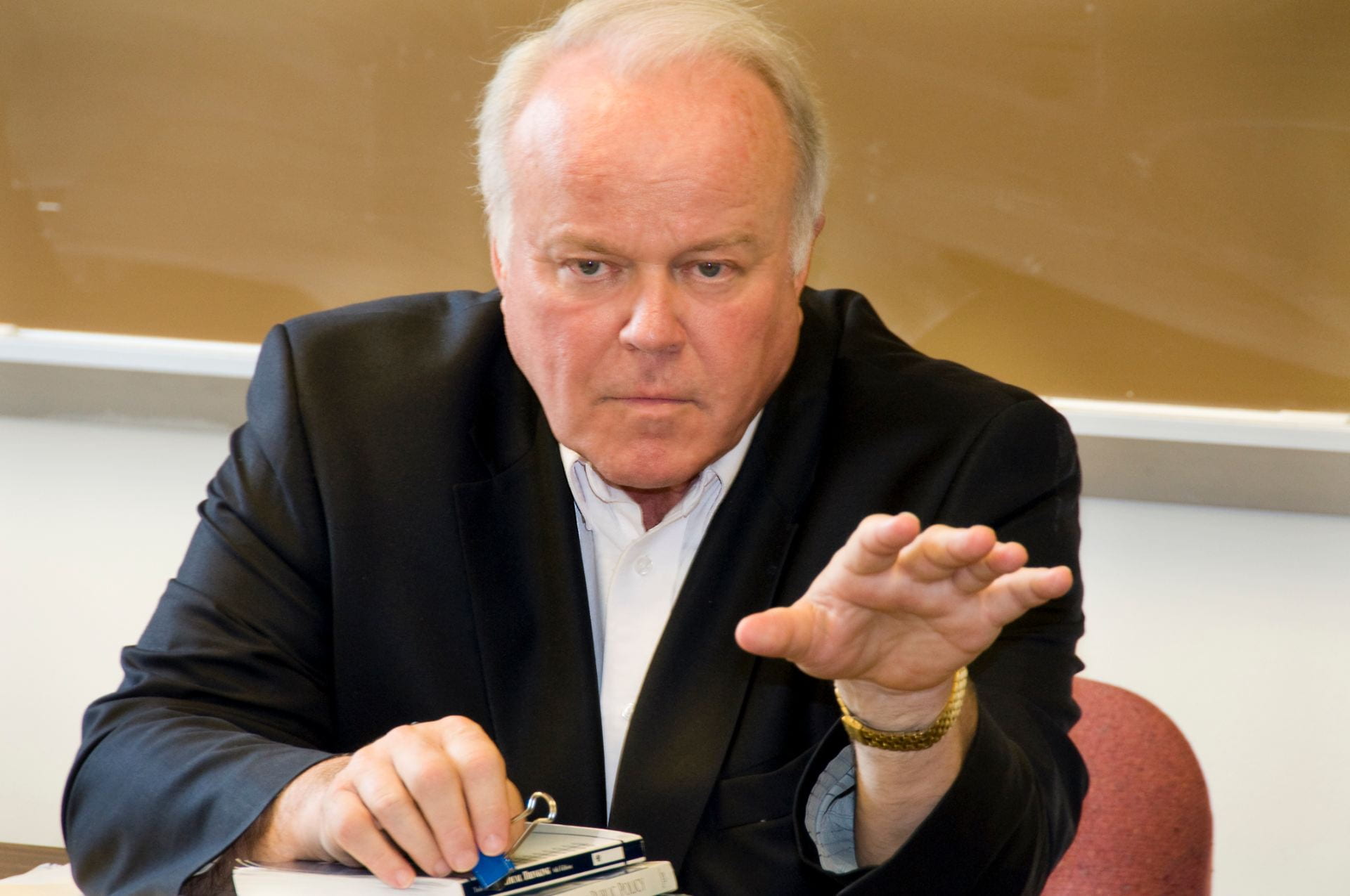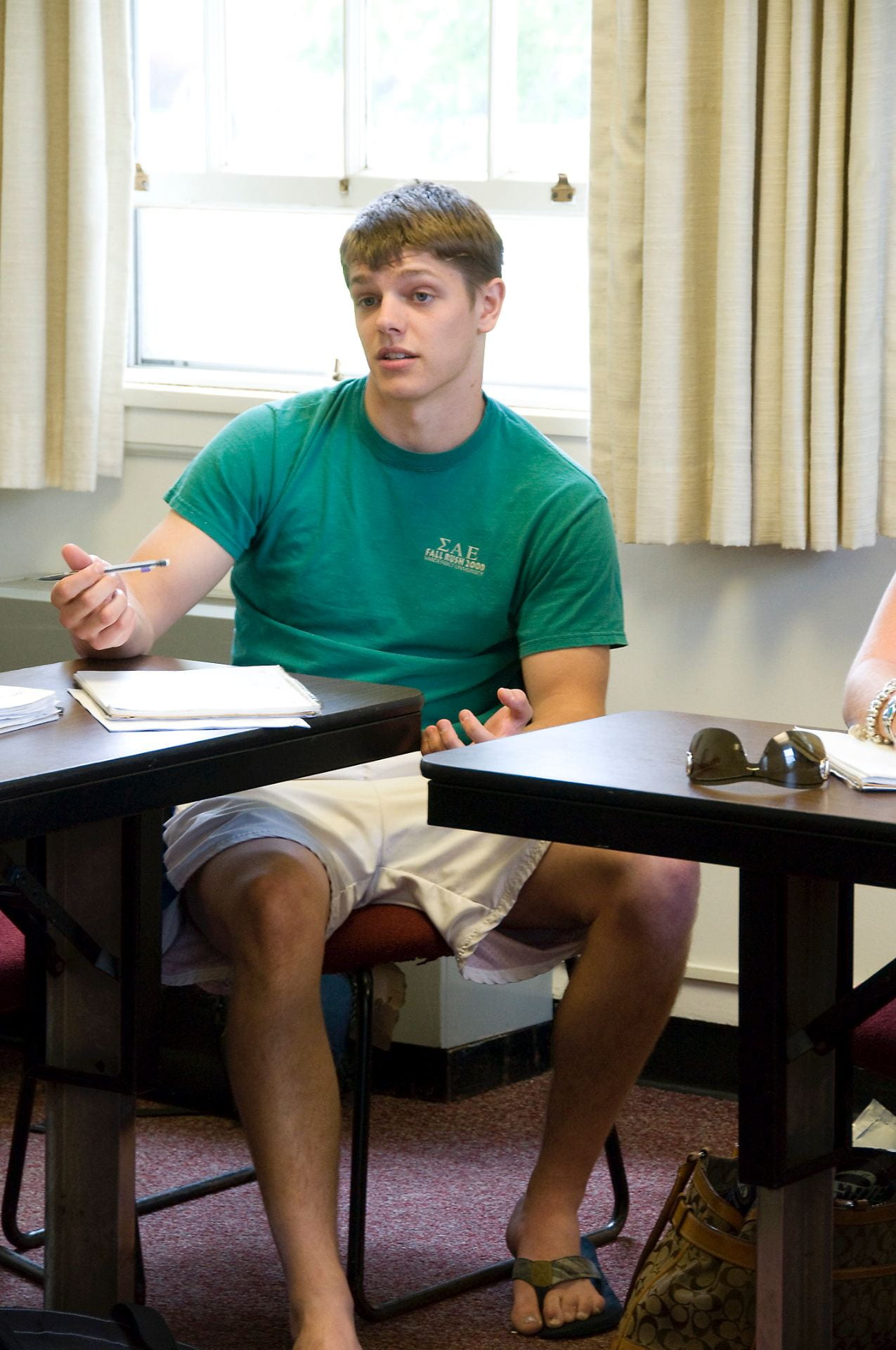From Byron
From Byron
How to Apply
Current Fellows
Past Recipients
Support
Fellowship
A Message




Byron A. Nichols, Professor Emeritus of Political Science, 1968-2008 | August 2013
When Alan and Susan Maycock first revealed to me in 2005 that they were planning to make a major gift to Union College in the coming years and proposed that it be connected to my efforts as a teacher and faculty member at Union, I was touched by their intention. But when I heard that they wanted to put my name on the project, I recoiled. I was excited and grateful that they wanted to make such a gift to the College, but I instinctively reacted to any kind of unnecessary personal visibility as my career was edging close to retirement. Nevertheless, because of the deep friendship among Alan and Susan and my wife, Lynda, and me for more than 35 years, I listened carefully as the next several weeks of discussion unfolded. I came to realize that the fundamental reason for their gift was to strengthen the teaching process at Union and to have faculty recognized for innovative interactions with students. And by incorporating my name, their efforts could draw additional support from former students who had been in my classes since 1968.
There was a two-pronged sword of their argument that I found persuasive. On the one hand, the sine qua non of a top-quality liberal arts college has always been its teaching and the personal relationships developed between students and faculty members. I certainly found that to be true as an undergraduate at Occidental College in Los Angeles, and many of my colleagues at Union who shared the small-college experience at other institutions report the same thing. If Union College is to succeed and thrive as we move more deeply into our third century, it must continue to feature the role of faculty member as teacher, mentor, and adviser. Relationships that are intensely intellectual, academically challenging, AND personal in nature matter significantly in the learning process. In a small college, human beings are in play, not roles.
But on the other hand – and here’s the second prong – Union College over my forty years here had increasingly focused on publication and scholarship by faculty. Certainly Union never abandoned its dedication to teaching, and the College rewards its faculty for teaching well. One can’t get tenure at Union without being at least a very good teacher. Certainly, there is always virtue in scholarly inquiry and peer review, perhaps less likely for the amount of significant new knowledge created than for the sharpness of mind maintained. And certainly there can be a synergy between research and teaching, as there should be. But increasingly more and more institutional attention and faculty acknowledgement at Union had been directed to scholarship, grant getting, and publication. Sabbaticals are almost always thought of by faculty and administrators alike as released time for new scholarly projects, not as time for developing new teaching innovations – or even for broadly keeping up with one’s own discipline as it rapidly changes. The late Christie Sorum, Union’s beloved Dean of Faculty, talked with me more than once about this shift in dynamics and how Union needed to reaffirm its historical commitment to teaching and to acknowledge and reward current Union faculty for their achievements as teachers and mentors, inside the classroom and out.
What I began to appreciate about Alan and Susan’s gift and strategy was its ability to provide a visible mechanism through which attention could be called to the significance of teaching and the primacy of small college intellectual life between students and faculty. They understood the centrality of intellectual exchange between student and faculty member, enhanced by personal mentoring and advising. The fellowship they have created encourages and rewards faculty for expanding their teaching horizons, and it seeks to acknowledge their accomplishments.
Personally, that goal also spoke directly to my own life experience as a graduate student. From 1964-68, I enjoyed the privilege of receiving a Danforth Graduate Fellowship, which paid the entire costs of my graduate school education at Johns Hopkins, both tuition and personal expenses. The goal of this national Danforth Foundation program was to fund emerging scholars pursuing academic careers who valued the importance of undergraduate teaching in its many dimensions. Significantly, the Danforth Foundation called on its Fellows to educate the “whole student” and explicitly included ethical and moral education to accompany disciplinary knowledge and academic rigor. I took that commitment seriously throughout my career. And now Alan and Susan Maycock – and the many other contributors to the Nichols Fellowship – seek to bring a similar opportunity of financial support and recognition to Union’s faculty in their dedication toward teaching in all of its dimensions on campus. I am honored that my name has become an integral part this effort.
